2mm 3mm 4mm marine grade 5052 h32 aluminum sheet
5052 H32 aluminum sheet is a marine-grade, non-heat-treatable wrought alloy with excellent corrosion resistance, good formability, and moderate strength. It is widely used for applications exposed to coastal and saltwater environments, including shipbuilding, marine fittings, fuel tanks, and architectural components. Sheets in 2mm, 3mm and 4mm thicknesses strike a balance between stiffness, weight savings, and ease of fabrication, making them particularly popular for hull panels, deck components, brackets, and other structural/non-structural marine uses.
highlights:
- Alloy: 5052 (Al-Mg)
- Temper: H32 (strain-hardened and partially annealed)
- Common thicknesses discussed: 2.0 mm, 3.0 mm, 4.0 mm
- Excellent resistance to seawater and corrosive environments
- Good formability for moderate bending and deep drawing
- Weldable by conventional methods (TIG/MIG), with recommended filler materials
Typical Applications
- Marine hull panels, decks, bulkheads, and superstructures
- Boat and ship components: fuel tanks, pontoons, trim tabs, brackets, ladders
- Architectural cladding and facades in coastal environments
- Chemical tanks and pressure vessels for mild media
- RV and trailer panels, storage boxes, and cabinetry
- Automotive fuel tanks and oil pans (non-high-temperature)
- General sheet metal work: signage, enclosures, and fixtures
Features & Benefits
- Corrosion resistance: Excellent resistance to seawater, brine and atmospheric corrosion — ideal for marine environments.
- Weldability: Readily welded by TIG, MIG and resistance welding. Minimal post-weld corrosion when correctly alloyed and treated.
- Formability: Good cold formability in H32 temper; suitable for bending, moderate stamping and roll forming.
- Strength: Moderate tensile strength making it a good compromise between ductility and rigidity.
- Weight savings: Lower density vs. steel for improved fuel efficiency and easier handling.
- Surface finish: Available mill-finished, anodized, or pre-painted for improved aesthetics and additional corrosion protection.
Chemical Composition (Typical)
| Element | Min (%) | Max (%) |
|---|---|---|
| Aluminum (Al) | Balance | — |
| Magnesium (Mg) | 2.2 | 2.8 |
| Chromium (Cr) | 0.15 | 0.35 |
| Manganese (Mn) | — | 0.1 |
| Iron (Fe) | — | 0.4 |
| Silicon (Si) | — | 0.25 |
| Copper (Cu) | — | 0.1 |
| Zinc (Zn) | — | 0.1 |
| Others (each) | — | 0.05 |
| Others (total) | — | 0.15 |
Note: Values shown are typical limits per common standards (e.g., ASTM B209 / AMS 4027). Actual certified composition may vary slightly by mill and specification.
Mechanical & Physical Properties (5052 H32 — Typical)
| Property | Value (Unit) |
|---|---|
| Temper | H32 |
| Density | 2.68 g/cm³ |
| Ultimate Tensile Strength (UTS) | 228 – 293 MPa |
| Yield Strength (0.2% offset) | 138 – 193 MPa |
| Elongation (in 50 mm) | 6 – 12 % |
| Hardness (HB) | ~60 – 80 HB |
| Modulus of Elasticity | 69 GPa |
| Thermal Conductivity (@25°C) | ~138 W/m·K |
| Melting Range | 605 – 650 °C |
| Electrical Conductivity | ~33 % IACS |
Mechanical properties vary with sheet thickness and manufacturer processing. H32 temper provides a balance between strength and formability by partial work hardening and stabilization.
Dimensional & Tolerance Data (Typical for 2/3/4 mm Sheets)
| Thickness | Typical Tolerance (Thickness) | Typical Widths | Typical Lengths |
|---|---|---|---|
| 2.0 mm | ±0.10 mm | 1000 / 1250 / 1500 mm | Cut-to-length or coil (standard 2000–6000 mm) |
| 3.0 mm | ±0.12 mm | 1000 / 1250 / 1500 mm | Cut-to-length or coil |
| 4.0 mm | ±0.15 mm | 1000 / 1250 / 1500 mm | Cut-to-length or coil |
Custom widths and lengths available upon request. Tolerances depend on standard followed (EN, ASTM) and mill capabilities.
Fabrication & Joining
- Cutting: Shearing, waterjet, laser, and saw cutting work well; take care to avoid burrs and edge deformation.
- Bending/Forming: 5052 H32 bends easily; use appropriate bend radii (recommended minimum internal radius ≈ 1.5–2 × thickness for tight bends). Springback should be accounted for.
- Welding: TIG (GTAW) and MIG (GMAW) are commonly used. Recommended filler alloys: 5356 (Al-Mg, higher strength, compatible for marine use) or 5183 depending on service. Pre- and post-weld cleaning is advised to avoid galvanic corrosion.
- Fastening: Mechanical fastening (rivets, bolts) is common; use insulating washers or sealants to minimize galvanic corrosion when joining dissimilar metals.
- Surface treatment: Anodizing, painting, powder coating or conversion coatings (e.g., chromate conversion) improve corrosion resistance and aesthetics.
Corrosion Resistance & Marine Performance
5052 alloy owes its marine reputation to magnesium as the principal alloying element, which increases general corrosion resistance and strength in seawater. In marine applications:
- Excellent resistance to salt spray and seawater exposure when properly finished and maintained.
- Good resistance to pitting in chloride environments compared to many other non-heat-treatable alloys.
- When joining to steels or copper alloys, use isolation methods (coatings, sealants, insulating gaskets) to prevent galvanic corrosion.
Standards & Specifications
Common standards covering 5052 sheet include:
- ASTM B209 — Aluminum and Aluminum-Alloy Sheet and Plate
- AMS-QQ-A-250/8 and similar aerospace/industrial specs for certain forms
- EN 485 / EN 573 for European chemical/mechanical requirements
Always confirm specific material certification and tests (mill test report / MTR) for critical marine or regulated applications.
Handling, Storage & Maintenance
- Store sheets flat, dry, and off the ground to prevent moisture contact and staining.
- Avoid contact with dissimilar metals during storage to reduce galvanic corrosion risk.
- After cutting/welding, remove debris and swarf promptly and flush with fresh water to remove salt residues.
- Regular inspections and maintenance (washing, re-coating) prolong service life in harsh marine environments.
Availability & Supply Options
- Stocked in coils and cut-to-length sheets in 2.0 mm, 3.0 mm, 4.0 mm thicknesses.
- Surface finishes: mill finish, brushed, anodized, painted, or embossed (on request).
- Custom slitting, edge conditioning, CNC punching, and laser cutting services available.
- Typical packaging: wooden crates, stretch-wrapped bundles, and palletized sheets for export.
Typical Weight Calculations
Sheet weight per square meter = density × thickness
| Thickness (mm) | Weight per m² (kg) (approx) |
|---|---|
| 2.0 | 5.36 kg/m² |
| 3.0 | 8.04 kg/m² |
| 4.0 | 10.72 kg/m² |
(Using density = 2.68 g/cm³; weight (kg/m²) = 2.68 × thickness(mm) / 1000 × 1000 = 2.68 × thickness/1)
Selection Guidance
- Choose 2 mm when weight saving and formability are critical and loads are moderate (e.g., interior panels, decorative trim).
- Choose 3 mm for a balance of stiffness and weight for hull fittings, brackets, or moderate structural panels.
- Choose 4 mm when greater stiffness, impact resistance and stiffness are required (e.g., small craft hull panels, structural supports).
- Confirm environmental exposure, expected loads, and joining methods. For heavy structural use or where higher strength is needed, consider other tempers or alloys (e.g., 5083 for higher strength marine structural components).
Related Products
Marine 5059 aluminum sheet
5059 aluminum alloy is a strain-hardened material with a unique addition of magnesium and chromium, which provides outstanding resistance to localized corrosion like pitting and stress corrosion cracking.
View DetailsMarine 5086 aluminum sheet
This product article provides an in-depth and comprehensive understanding of Marine 5086 Aluminum Sheets, including their chemical composition, mechanical properties, corrosion resistance, fabrication capabilities, and typical marine applications.
View DetailsMarine 5052 aluminum sheet
Aluminum alloy 5052 is a non-heat-treatable, strain-hardened alloy with magnesium as the primary alloying element. It is designed to offer superior corrosion resistance in marine and saline environments, making it a dependable choice for components exposed directly to seawater or coastal atmospheric conditions.
View DetailsMarine perforated aluminum sheets
Marine Perforated Aluminum Sheets feature a series of uniform holes or shapes punched through the aluminum surface. These perforations can vary in size, pattern, and open area to tailor the sheets for specific applications.
View DetailsMarine Aluminum Tread Sheets
Marine Aluminum Tread Sheets are aluminum alloy plates featuring a raised surface pattern, commonly referred to as a tread design or diamond plate.
View DetailsMarine 5083 aluminum sheet
Aluminum alloy 5083 is a non-heat-treatable alloy primarily composed of magnesium and trace elements that deliver outstanding protection against corrosion, particularly in seawater and saline atmospheres.
View DetailsRelated Blog
5052 5083 marine grade aluminium sheet for boat
Marine grade aluminium alloys 5052 and 5083 are among the most widely used non-heat-treatable alloys for shipbuilding, small vessels, and marine components. They combine good corrosion resistance in seawater, excellent weldability and formability.
View Details2mm 3mm 4mm marine grade 5052 h32 aluminum sheet
5052 H32 aluminum sheet is a marine-grade, non-heat-treatable wrought alloy with excellent corrosion resistance, good formability, and moderate strength. It is widely used for applications exposed to coastal and saltwater environments.
View DetailsMarin grade aluminum sheet 5052 5mm thick for boat
What is Marine Grade Aluminum 5052?Aluminum 5052 is a non-heat-treatable aluminum-magnesium alloy primarily known for excellent corrosion resistance, high strength among the non-heat treatable grades, and superb weldability.
View DetailsMarine Grade 5052 H112 Aluminum Coil
When it comes to marine construction and equipment, material choice plays a crucial role in determining durability, performance, and safety. Marine Grade 5052 H112 aluminum coil stands out as a superior option specially engineered for marine environments.
View DetailsMarine grade aluminum for ship building aluminium sheet 5052 h111
Superior strength, corrosion resistance, and durability of marine grade aluminum 5052 H111 aluminum sheets, ideal for shipbuilding applications requiring high fatigue strength and excellent seawater performance.
View DetailsAluminium sheet 8mm alloy 5052 h112 for boat
When selecting materials for marine applications, especially in boat building, the balance between strength, corrosion resistance, and workability is crucial. Aluminium sheet 8mm thick made from alloy 5052 in temper H112 epitomizes this balance.
View Details

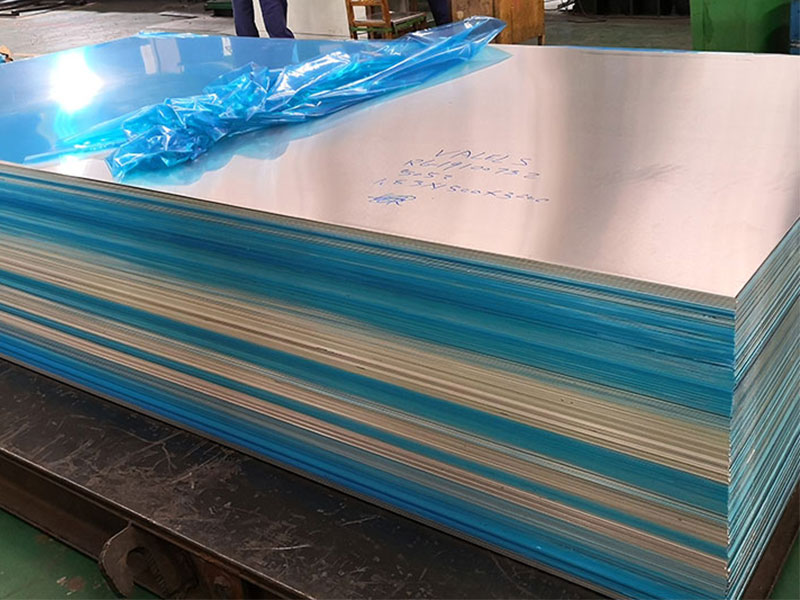
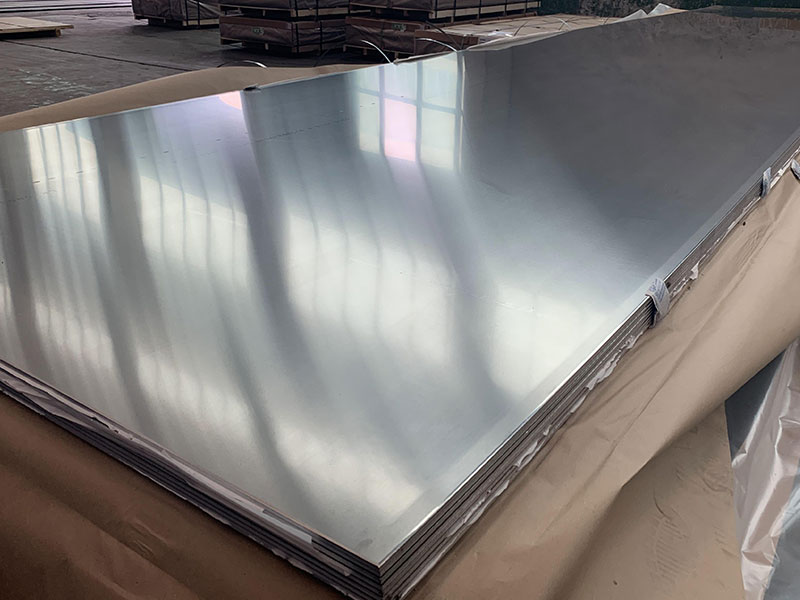
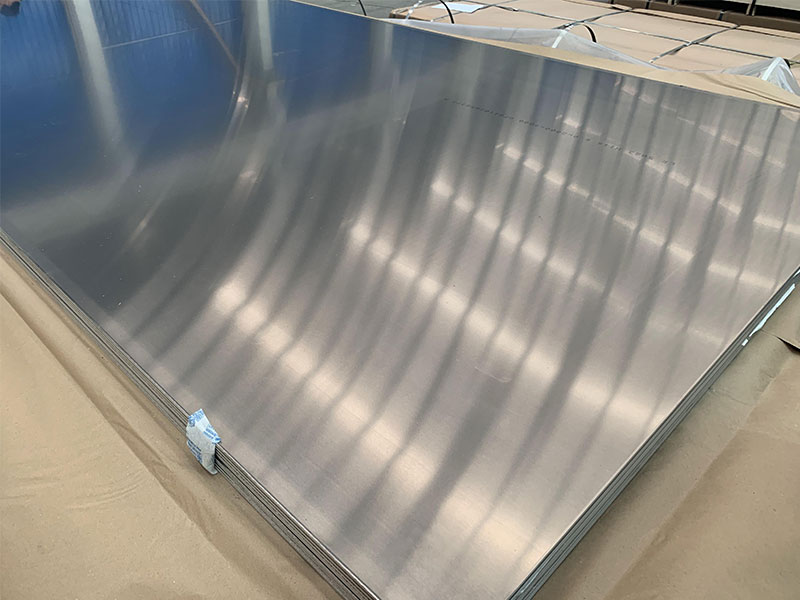
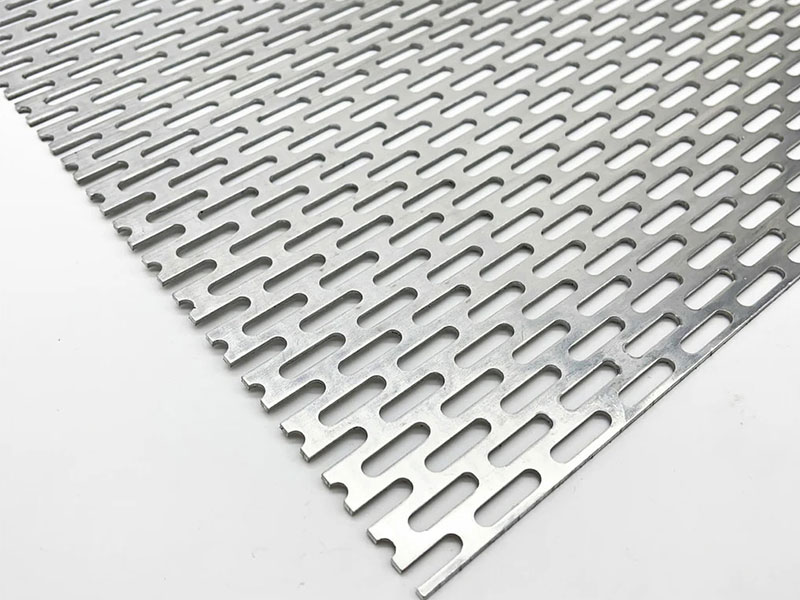
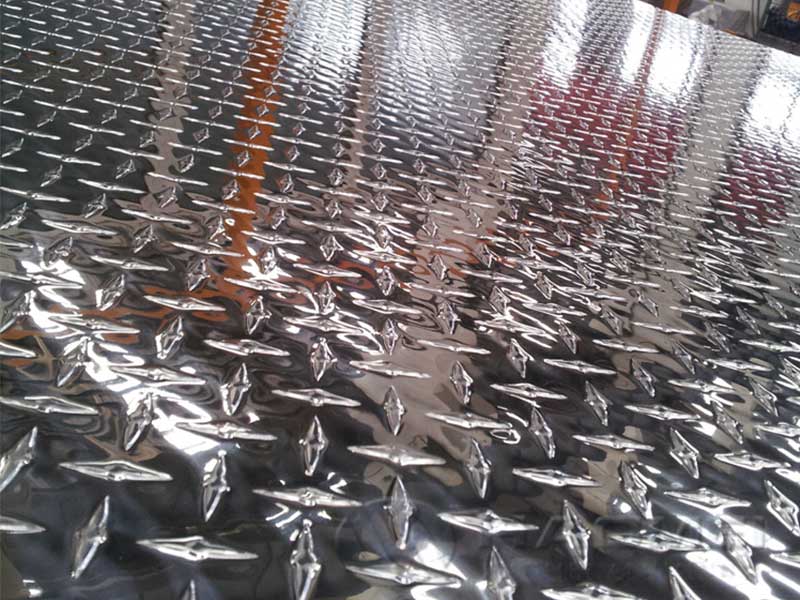
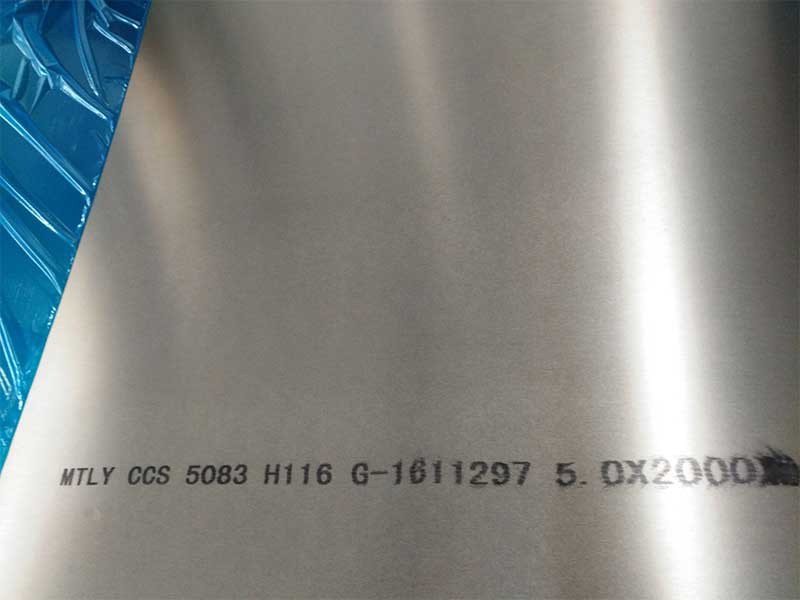







Leave a Message